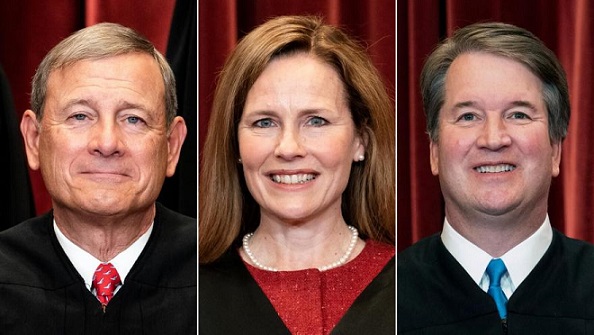The SCOTUS Just Made Suing Corrupt Police & Prosecutors Simpler!
FEATURED PHOTO: POLICE INTERROGATIONS
YourBlackWorld.net, By Victor Trammell, Posted April 21st 2022

The United States Supreme Court made it easier to sue police officers and prosecutors for malicious prosecution on April 4. However, the judgment retains other impediments to such actions.
The judgment is centered on an instance of diaper rash.
Larry Thompson was living with his then-fiancée (now wife) and their newborn child when his sister-in-law, who was evidently mentally ill, contacted 911 to report Thompson assaulting the infant. When EMT officers came, they were welcomed to the apartment by the sister-in-law, but Thompson, uninformed of her 911 call, informed them that they had arrived at the incorrect location.
The EMT personnel departed but returned with four New York City police officers to the residence. Thompson opened the door this time and refused to allow them without a search warrant. Thompson was then thrown to the floor and detained as EMTs evaluated the infant. The only marks they saw were diaper rash, but the infant was rushed to the hospital for confirmation.
Thompson, on the other hand, was arrested and charged with resisting arrest and impeding governmental administration for two days. Prosecutors finally offered him a plea bargain in which his record would be expunged, but he declined, and prosecutors then withdrew all charges without explanation.
Thompson sued, claiming that he was the victim of malicious prosecution. However, under New York’s federal appeals court precedent, Thompson was required to demonstrate that his innocence had been “affirmed.” The dismissal of charges without reason was insufficient.
On April 4, the Supreme Court ruled in favor of Thompson, finding that he was not required to provide an “affirmative signal of innocence.” The result was 6-to-3, with three conservative justices entering the court — Chief Justice John Roberts, Justices Brett Kavanaugh, and Amy Coney Barrett — with three liberals in the majority.
The majority judgment was written by Justice Kavanaugh, who said that a plaintiff needs merely demonstrate that his prosecution terminated without a conviction, which Thompson accomplished in this case.
Conservative Justices Samuel Alito, Clarence Thomas, and Neil Gorsuch dissented from the April 4 opinion.








